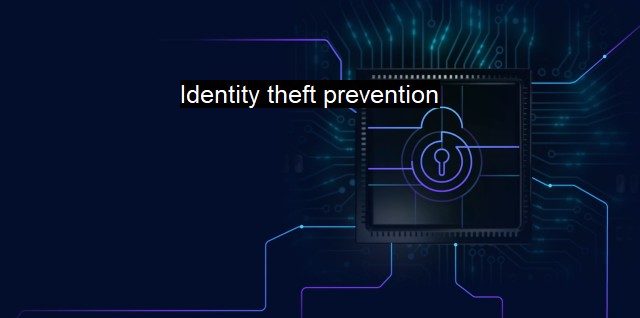What is Identity theft prevention?
The Crucial Role of Antivirus Software in Identity Theft Prevention in the Digital Age
Identity theft prevention refers to the tactical and strategic methods deployed to minimize the risk or occurrence of identity theft. It encompasses a wide range of principles, behaviors, tools, and technologies designed to protect personal, digital, and financial information from unauthorized access and usage. In the sphere of cybersecurity and antivirus, identity theft prevention takes an even higher level of importance given the nature of information that a victim stands to lose following an identity theft.Cybersecurity is often viewed as an ensemble of technologies, processes, and practices engineered to protect systems, networks, programs, devices, and data from digital attacks, damages, theft or unauthorized breaches. Identity theft prevention sits smack in the middle of this cybersecurity agenda as a central concern due to the richness and vulnerability of personal information housed in these digital environments. Given the digital engagements of typical internet users, the internet is increasingly becoming a hot-spot for identity thieves looking to prey on susceptible individuals to exploit sensitive information to commit crimes.
This diversity in cyber threats has, in turn, stimulated various strategies centered on cybersecurity identity theft prevention. More basic prevention techniques employ educational initiatives, advocating for vigilant online behaviors such as scrutinizing emailed links before clicking, averting interactions with unfamiliar or suspicious online users, and routinely updating, diversifying, and strengthening passwords on all digital accounts. Other methods include pushing for a regular system updating to ensure that software applications are in their most secure state and uninstalling redundant software to reduce overall system vulnerability.
In the antivirus context, identity theft is also of primary concern. Antivirus software essentially functions as prevention tools by identifying, blocking, and removing malicious software from a digital system. Thus, antivirus is a form of identity theft prevention as it thwarts malicious software which frequently tries to tap into personal and private information. Advanced antivirus programs go a step further by incorporating anti-phishing skills to detect and block phishing attacks - where identity thieves trick individuals into giving up personal information.
The significance and effectiveness of cybersecurity and antivirus products in identity theft prevention can be understood better by separating identity theft into its broad categories. Financial identity theft where bank account information or details are copied and exploited, is deterred considerably by using trusted online platforms processed via secure, regularly updated systems equipped with state-of-the-art antivirus software.
Criminal identity theft, in which an imposter provides the victim’s credentials for their crimes, could be counteracted by meticulously managed online behaviors informed by extensive cybersecurity knowledge. Many established cyber-protection campaigns emphasize education and awareness on cyberspace engagement principles, reinforced by identity theft prevention tools like VPNs (Virtual Private Networks), effective at maintaining anonymity and privacy over the internet.
Medical identity theft, another prevalent form, involves impersonating a victim to access medical care, drugs, or insurance expenses. As the healthcare industry evolves to feature increasingly integrated and complex digital systems, cybersecurity takes a larger role to curb this type of identity theft.
While prevention is always better than the cure when it comes to identity theft, it can be almost impossible to guarantee total security. Standard guidelines, like frequently monitoring account activities, tracking credit reports, occasionally resetting passwords, and using two-factor authentication, can make cyber environments harder for identity thieves to infiltrate.
Identity theft prevention takes on a crucial role in the broader scheme of cybersecurity and antivirus. Made up of multiple approaches and tools, including vigilant internet habits, cutting-edge antivirus software and cybersecurity awareness, identity theft prevention is an extended defense project which aims at ensuring user’s identities remain uncompromised in an increasingly digital world. Therefore, principles of identity theft prevention become vital components of both cybersecurity and antivirus defenses, consolidating primary measures employed to ensure data integrity for internet users at all levels.

Identity theft prevention FAQs
What is identity theft prevention?
Identity theft prevention refers to the measures taken to protect individuals' personal information and prevent fraudsters from stealing their identity.What are some common ways identity theft can occur?
Identity theft can occur through phishing, skimming, hacking, stolen mail, and theft of physical documents.What are some effective ways to prevent identity theft?
Effective ways to prevent identity theft include being cautious about sharing personal information, using strong and unique passwords, regularly updating antivirus software, and monitoring bank accounts and credit reports.What should you do if you suspect your identity has been stolen?
If you suspect your identity has been stolen, you should immediately freeze your credit, report the situation to the authorities, and take steps to secure all of your accounts and information.| | A | | | B | | | C | | | D | | | E | | | F | | | G | | | H | | | I | | | J | | | K | | | L | | | M | |
| | N | | | O | | | P | | | Q | | | R | | | S | | | T | | | U | | | V | | | W | | | X | | | Y | | | Z | |
| | 1 | | | 2 | | | 3 | | | 4 | | | 7 | | | 8 | | |||||||